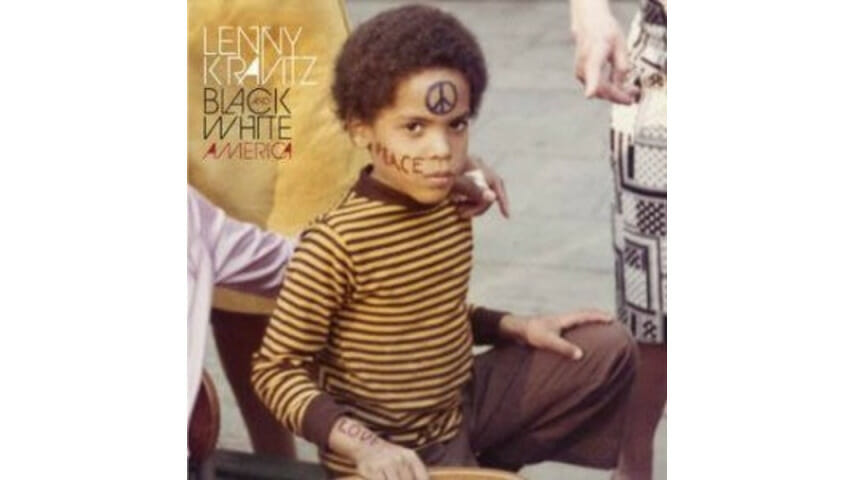Lenny Kravitz: Black and White America

Pop music chameleon Lenny Kravitz, being a half-white/half-black American, has plenty of justification for titling his ninth album Black and White America. There aren’t too many biracial rock stars in the U.S., after all. But as a musician, producer and songwriter, Kravitz has always been a tough nut to crack—he’s been a spaced-out guitar hero-hippie (“Are You Gonna Go My Way”), a falsetto-sporting soul man (“It Aint Over ‘Til It’s Over”), a fist-pumping, riff-driven modern rocker (“Fly Away”) and a piano balladeer (“I’ll Be Waiting”), among other titles. Being deeply immersed in both black and white cultures—and the musics of both—he brings a fairly singular perspective to his songs.
But Kravitz’s genre-hopping skills are pretty impressive, regardless of ethnicity. Few pop stars have been able to cover so much stylistic ground, and even fewer have been able to do so without falling out of the record-buying community’s good graces (even if there have been a few critical speed bumps along the way). If you turn on your car radio, you can flip through three or four stations and hear a Kravitz song at any given moment. Which is certainly saying something. There’s a reason he’s been able to stick around for over 20 years in an unforgiving industry. Even in his clumsiest, most awkward moments (Is anyone else still traumatized by the dancing-girl music video to the god-awful “Lady”?), Kravitz has remained a reliable craftsman: writing (or co-writing), producing, and playing nearly every instrument on every one of his albums.
-

-

-

-

-

-

-

-

-

-

-

-

-

-

-

-

-

-

-

-

-

-

-

-

-

-

-

-

-

-

-

-

-

-

-

-

-

-

-

-








































